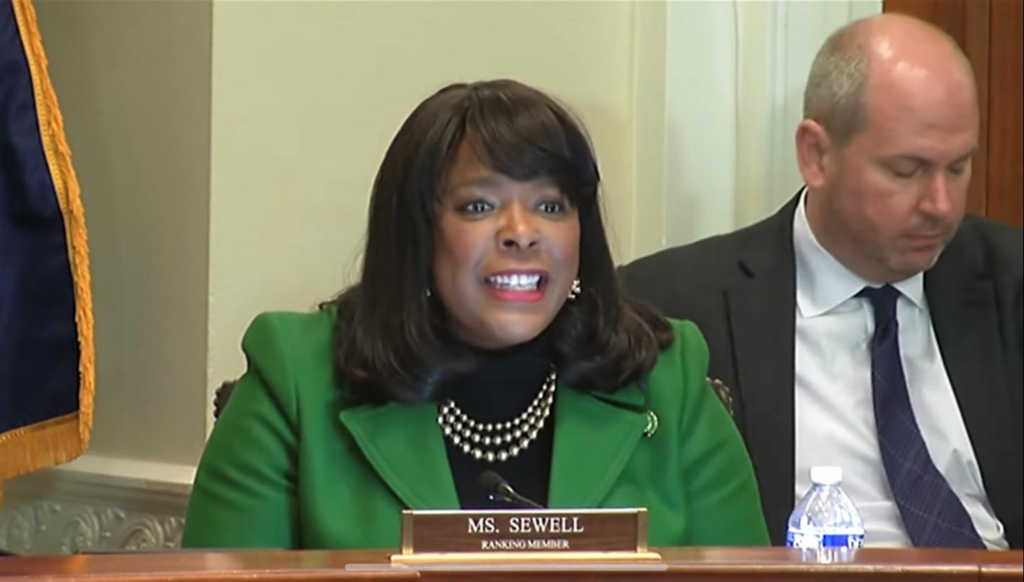Miles College embarks on $25 million fundraising campaign to celebrate 125th anniversary

In celebration of its 125th anniversary, Miles College has kicked off phase two of a $125 million fundraising campaign. Over the past five years, President Bobbie Knight has secured $100 million for the campaign during a “silent” phase. The $25 million “public” phase of the comprehensive fundraising campaign and community development was announced today (Sept. 12) at the Clyde Williams Welcome Center on campus. The theme is “Come Grow with Us.” Mike Suco, president of Coca-Cola Bottling Co. United, and Leroy Abraham, executive vice president and head of Community Affairs for Regions Bank, will serve as co-chairs. “It is our moral and spiritual responsibility to provide guidance and funding that will ensure the next 125 years of Miles College,” said Bishop Clarence Kelby Heath, chair of the board of trustees for Miles College. “We understand the pivotal role that our graduates have played in the social, economic, and business undertakings across our region and our country.” Miles was founded in 1898 by members of the Colored (now Christian) Methodist Episcopalian (CME) Church. In recognition of the anniversary, the campaign will seek investments in scholarships, buildings renovations, academic programs and community development, Knight said. “We are laser-focused on improving the student experience and executing an efficient growth strategy that positions Miles College for the future … and how we impact the growth of the region,” said Knight, a former executive at Alabama Power. Bobbie Knight is president of Miles College. (Solomon Crenshaw Jr. / The Birmingham Times) Knight said the “Come Grow with Us” theme has multiple meanings. “Grow our student enrollment; grow our scholarship funds; grow our endowment; grow offerings that we’re providing, not just to students, but to the community. We want to grow Fairfield.” The growth goes beyond the immediate campus, she said. “We have 40-plus acres where Lloyd Noland Hospital used to be that we want to develop,” Knight said. “And one of the things I want to do is ensure that I kickstart that, because in my mind, developing that property helps the city of Fairfield. I need some type of public-private partnerships over there. “I’ve talked to a charter school that is interested in building up there. We’re not taking anything off the table. We’re just looking for what makes the best sense for Miles College and for Fairfield.” Knight said the same kind of focus has been on the institution’s educational offerings. “I look to see what we’re teaching, what we’re offering and … what we should be offering,” she said, with an eye toward “increasing some areas where we know it makes sense for our students. For instance, we had insurance companies present us with an opportunity because they were having trouble finding African American students who majored in actuarial science. “Well, it’s hard to find people, period, who major in actuarial science, but what we said to them is, ‘we will find students, but you’ve got to help us. You teach our faculty, and then come in and teach our students. And then we’ll find the best students, because they’re already probably math or accounting majors,’ and now we’ve had our first actuarial science graduate.” Those kinds of partnerships help with workforce development, Knight said. “We want the business world; we want other entities to tell us what their needs are. So we’re looking at developing a certificate program. We applied for and received a sizable grant to pay someone to go out in the workforce and tell us what’s cutting edge. “The governor has been talking about … workforce development initiatives; she’s been talking about certifications. …One of those certificate programs is going to be a certificate in social justice, and it is framed around (former Birmingham Mayor) Richard Arrington and (retired federal Judge) U.W. Clemon.” The leadership at Miles College is eying growth plans. (Miles College) Knight said the school remains “relentless, looking for and examining what makes sense for Miles and what makes sense for our students.” The mission of 125 years ago hasn’t changed, she said. “We’re (looking to) give our students a top-notch experience here at Miles College. I am always committed to Miles College, our students and the historical mission bestowed upon this institution … to motivate and prepare students to seek knowledge that leads to intellectual and civic empowerment.” This story originally was published by The Birmingham Times. Republished with the permission of The Alabama NewsCenter.
Terri Sewell hopeful two of Alabama’s seven congressional districts will become majority-minority

Congresswoman Terri Sewell (D-AL07) participated in a symposium on the Milligan v. Allen decision at Miles College on Tuesday. There Sewell said she would not be satisfied with less than “50 percent plus one or more” African American in two of Alabama’s congressional districts. The Legislature redistricted the state in 2021, but the federal courts have since ruled that the Legislature’s redistricting violated the Voting Rights Act of 1965 and have ordered the Legislature to draw two majority-minority districts or at least two districts that were largely minority. Sewell said that the recent Supreme Court decision affirming the three-judge panel of the Eleventh Circuit Court of Appeals decision was a surprise given previous court decisions by this current court. “We all expected the Supreme Court to once again gut the Voting Rights Act,” Sewell said. “I am so excited about the historic nature of our victory,” Sewell said. “It was a historic victory for not just Black Americans, but it was a victory for democracy.” Sewell continued, “It is going to force the Alabama Legislature to draw a new congressional districting map by July 21. It (the ruling) does not say that we have to have two majority minorities districts.” On Twitter, Sewell wrote, “The fight for voting rights is the fight of a lifetime. We’ve made progress, but if we are not vigilant about advancing it, we will lose it. Thank you @MilesCollege for hosting this critical and timely discussion! I was honored to join these distinguished guests!” Retired federal Judge U.W. Clemons said that he felt that the map adopted would be one that kept counties together as much as possible. “I think the three-judge panel will give great deference to the map that respects the integrity of the counties,” Clemons said. “I am looking for 50% (Black voters) plus more in each of the districts,” Sewell said. “I am convinced that not only will this decision affect Alabama, it will affect the nation,” Clemons said. “The Supreme Court abided by the precedent set in Thornburgh versus Gingrich.” Clemons explained that “three conditions” exist for creating a majority-minority district under the Thornburgh v. Gingrich precedent. “It has to have a large enough population of minority voters,” Clemons explained. “It has to be able to draw a cohesive district, and there has to be a history of the majority voting in a racially polarizing way. We meet all of those conditions here in Alabama.” “Brown versus the Topeka Board of Education was first argued before the Supreme Court in 1952,” Clemons said. Clemons explained that the ruling determined that separate but equal education was inherently unequal. “That ruling was the first evidence during my life for that there was a God,” Clemons said, adding that this ruling also was likely due to God. Clemons is retired from the federal bench, but he is not retired. “This ruling has the potential to reshape this nation,” Clemons said. Clemons said concerns about the public popularity of the current court may have motivated Chief Justice John Roberts to write this opinion in Milligan versus Allen. “This court has the lowest credibility of any Supreme Court that has ever sat,” Clemons said. “The Chief Justice felt that he had to try to maintain at least some credibility with the public. It is a signal that he, as a chief justice, is representing the nation.” “The Milligan case will have profound impact across this nation,” Sewell said. State Senator Merika Coleman (D-Birmingham) said. “It truly is profound what has happened with the Milligan case.” Coleman continued, “Of course, there will be some people who will try to do something that is not what the court said. A Senator I will not name here told me on the phone: We are just going to give you two districts that are 47% African American.” Coleman said that the maps that the Legislature draws will still have to be shown to Milligan and the other plaintiffs in the case, and they can either accept them or ask that the three-judge panel appoint a special master to draw the districts. “If they draw two districts that are 47% African American, a special master will have to come in,” Coleman said. “We want to be able to draw those districts ourselves.” “We already have a safe African American congressional district,” Coleman said. Coleman said that both districts need to be “50 percent plus one or more Black voting age population.” “We have a real opportunity to pick our candidate of choice,” Coleman said. “I have absolutely no faith that the Alabama Legislature is going to do the right thing. It never has,” Clemons said. “The courts are going to do it.” “Neither Democrats or Republicans want the special master to come in,” Coleman said. “Congressional District Two is the one where my former colleague Barry Moore is.” “The Legislature is going to do what it usually does,” Clemons said, “In 1872, we had one Black member of Congress. In 1874, we had one member of Congress.” Alabama would not have another Black member of Congress until Earl Hilliard in 1992. Hilliard’s Seventh Congressional District was 65% African American. Today the Seventh Congressional District is represented by Sewell. “It was 61% African American before redistricting,” Sewell explained. “It dropped to 55% in this redistricting. “It would not be fair for it to fall to below 50%.” Clemons said that it is important that Blacks are united politically. “If the Black Community had four political parties and all four were equal in strength, we would not be politically cohesive,” Clemons said. “For better or worse, most Black communities are Democrats. Frankly, our being Democrats means that we are politically cohesive.” Sewell said that, “Change comes when ordinary people fight to do better, and they work on the ground.” Sewell predicted that if the Democrats pick up a new majority-minority seat in Alabama, Louisiana, Arkansas, Georgia, Florida, and South Carolina, “the first African-American man Hakeem Jeffries will become the Speaker of the House.” The Governor has called a special session for redistricting to start on July 17.
Rep. Terri Sewell celebrates Judge U.W. Clemons on his 80th birthday

On Tuesday, Congresswoman Terri Sewell celebrated the birthday of the Honorable Judge U.W. Clemon with a speech on the floor of the U.S. House of Representatives. Clemon was Alabama’s first Black federal judge. He was also a former State Senator. He celebrated his 80th birthday on Sunday, April 9th. “I rise today to honor the extraordinary career of a legal giant and Civil Rights activist, Alabama’s first Black federal judge, the Honorable U.W. Clemon, who celebrated his 80th birthday on April 9th,” Sewell said on the floor of the House. “A native of Alabama, Judge Clemon was born in 1943. Despite much of his childhood in the segregated school system of Jefferson County, Clemon broke down barriers, graduating as a two-time valedictorian, first at Westfield High School in 1961 and then at Miles College in 1965. As a college student, Judge Clemon was a leading voice for civil rights. He marched in countless student demonstrations under the direction of Dr. (Martin Luther) King and played a pivotal role in the Selective Buying Campaign to boycott segregated stores in downtown Birmingham.” “Before graduating from Columbia Law School in 1968, Clemon clerked at the NAACP Legal Defense Fund, forming a life-long association serving as local counsel on numerous civil rights lawsuits throughout Alabama,” said Sewell. “Judge Clemon always understood the importance of the law in the fight for justice and equality. He quickly gained a reputation as an effective and fearless lawyer, taking on Coach “Bear” Bryant to desegregate the all-white University of Alabama football team, and he took on the U.S. Steel Corporation, which led to the desegregation of the American steel industry.” “By 1974, Judge Clemon took his advocacy to the Alabama State Legislature, making history as one of the first two African Americans elected to the Alabama Senate since Reconstruction,” Sewell said. “His tenure as a pioneering lawmaker and skilled attorney caught the attention of President Jimmy Carter, who appointed then-(Alabama State) Senator Clemon to serve as Alabama’s first Black federal judge in 1980. He went on to serve on the federal bench for 30 years until 2009.” “Judge Clemon was a highly respected jurist inside and outside the courtroom,” Sewell continued. “He was known as fair but tough. He demanded that lawyers before him represent their clients competently and effectively. Judge Clemon served as Chief Justice for the United States District Court for the Northern District of Alabama from 1999 to 2006.” “Despite retiring from the bench in 2009, Judge Clemon has remained a vibrant member of the Birmingham legal community where he continues to practice law, serving the underrepresented, vulnerable, and underserved,” said Sewell. “He has received numerous awards, holds three honorary degrees, two street namings, and most recently, an elementary school was named in his honor. On a personal note, Judge Clemon is a trusted advisor, counselor, and a loving father figure to me. My most formative legal experience was serving as a law clerk for Judge Clemon after graduating from law school in 1992.” “I learned so much serving as his law clerk,” said Sewell. “I learned more about the practice of law and saw firsthand what justice looks like by witnessing him in his courtroom. Sitting with him in his chamber was always an educational experience. The Judge tested my knowledge, stretched my legal acumen, challenged my views, and inspired me to be a better lawyer and person. I know that I now serve as Alabama’s first Black Congresswoman because I was blessed by a transformative experience clerking for Alabama’s first Black federal judge. I want to thank his loving family, his wife of 50 years, Ms. Barbra, and his two children, Michelle and Isaac, for sharing him with so many of us.” “I ask my colleagues to join me in celebrating the 80th birthday and the extraordinary career of an exceptional jurist, lawmaker, and public servant, and wonderful counselor, Judge U.W. Clemon, whose life’s work stands as a testament to the power of one person to change the world,” said Sewell. “May the seeds Judge Clemon has sowed continue to bear fruit for generations to come. Happy birthday, Judge.” During U.W. Clemon’s tenure in the Alabama Senate, he chaired the Senate Rules Committee and the Senate Judiciary Committee. Terri Sewell is the first Black Woman to represent Alabama in the U.S. House of Representatives. She is serving in her seventh term representing Alabama’s Seventh Congressional District. To connect with the author of this story or to comment, email brandonmreporter@gmail.com
Judge orders city to pay legal fees in school fight

A mostly white Alabama city that tried to form its own school system must pay nearly $850,000 to attorneys representing black people who successfully fought the move, a federal judge ruled. U.S. District Court Judge Madeline Haikala ruled Monday that the NAACP Legal Defense Fund and attorney U.W. Clemon were due legal fees and expenses from Gardendale, which she said “acted in bad faith” when it attempted the split, al.com reported. Located north of Birmingham, Gardendale had not filed a response to the decision by Thursday, and an attorney for the city’s school board did not immediately return an email seeking comment. With about 14,000 residents, Gardendale is more than 80 percent white. It is located in Jefferson County, which is about 50 percent white. The city formed its own school board and hired a superintendent in 2014 in an attempt to break away from Jefferson County’s school system. The Legal Defense Fund and Clemon, a former federal judge, claimed the move was an illegal attempt to preserve a white majority in the city’s schools. Gardendale denied that race was a factor, but Haikala and the 11th U.S. Court of Appeals disagreed. Haikala also ruled that Gardendale demonstrated bad faith when it tried to end federal court oversight of Jefferson County schools under a 1971 desegregation agreement. Haikala ordered the city to pay nearly $740,000 in legal fees to the NAACP Legal Defense Fund and Clemon and another $106,400 in expenses. Republished with the Permission of the Associated Press.


